- Home
- Kathryn Lasky
The Rise of a Legend Page 5
The Rise of a Legend Read online
Page 5
He flew back, pointing. “We’ll fetch up on the Dagger,” said the harvester.
We flew to a narrow rocky beach on the lee side of the Ice Dagger. There were nine of us in all. The Short-eared harvester, a female named Aiyunne, extended a wing and patted her scrapper, Bela, who was sobbing. The only time I had ever seen a grown-up crying was when I was hatched out, and the messenger came and told of Edvard’s death. And though I didn’t know the owl who had died, my eyes also filled with tears.
Moss was trembling. “Wh … what …” Before he got the words out, I knew what he was going to ask. “What were those marks, those red marks on their faces?”
“Ah!” Arne sighed deeply.
“The double crescent — an ancient Krakish symbol, evoking Bhachtyr.”
“Bhachtyr?” Moss and I both said at once.
“The Sacred Force from ancient times — Bhachtyr the Destroyer. Bylyric has taken this as his symbol. Sometimes they have a strange effect. We’re used to seeing it, but the first time it’s hard. Rough on the gizzard.”
Aiyunne, the Short-eared harvester, gave a muffled sob. Her scrapper turned to her. “I’m so sorry about Piet.”
“He’s down there someplace, isn’t he? He can’t even have a proper burial!”10
“Is — is —” I began stuttering.
“What, son?” My da turned to me.
“Never mind,” I replied in a small voice.
I was going to ask if the owl, the owl I had never even met, was really dead. But I knew that was stupid, childish. I kept peering down into the tumult of the Everwinter Sea expecting to see the owl emerge. How could someone be here one minute and gone the next? I had to stop myself from saying the dumbest thing of all, the most babyish thing of all: no fair! Can you imagine ever hearing a soldier, a warrior, cry “no fair”? The order of the universe had gone yoickers.
We flew at a blistering pace to Dark Fowl. There was simply no time to waste. The attack on the Ice Dagger was the farthest west an Ice Talon unit had come into Kielian League territory; indeed, it was close to the very heart of our territory. Both my father and Arne thought they recognized one of the attacking owls as Bylyric’s top lieutenant. I flew even faster when I heard them say this. It was almost as if I could feel the shadow of the Orphan Maker on my tail feathers, blotting out the stars, the moon, making the dark feel even blacker. My father and Arne were flying directly to General Andricus Tyto Alba at command headquarters to report the attack to him.
As we approached Dark Fowl, the wind brought the acrid smell of the forges and a few tentacles of dark smoke scrolled across the sky. We went into wide, banking turns, and our fathers led Moss and me on a low flight so we could see the lay of the island. The flames from two dozen or more forges licked the twilight like bright red tongues.
There is no place quite like Dark Fowl Island. It is a place of fire and song, slogs and smiths, forges and training fields. Security is tight, for this is the place where weapons are not just wrought out of metal and ice, but invented. Of all the places in the owl world, this one came closest to what the Others would call a city. It bustled with scrappers and harvesters, Kielian snakes who honed the blades of scimitars and ice swords with their fangs, young cadets beginning their military training. You must imagine what this was like for Moss and me. Neither one of us had seen much more than the immediate neighborhood of our own respective trees until we made our first flights to Hock. Stormfast was not a heavily populated island, particularly the region where we lived. I had never even met a Short-eared or a Barn Owl until we encountered harvesters and scrappers on the Ice Dagger.
“I see old Garn must be using caribou droppings,” Da said.
“Caribou droppings?” Moss and I both asked at once.
“What’s a caribou, Da?” I asked.
“A four leg.”
“Four leg!” we blurted out in unison. We had heard of four legs, but never seen one.
“They don’t live around here, that’s for sure,” my da said. “Garn had to go all the way to the Beyond for that. Getting pretty old for such a long flight.”
“Look at the forge down to port. Smell it.” Owls are not known for their olfactory abilities, but I could smell something that seemed to hint of the sea. “Fish oil and well-seasoned seaweed. It’s Juhani’s forge. He’s a Fish Owl,” Arne explained.
Our fathers had to go directly to command headquarters, so they arranged for Juhani’s assistant, an Elf Owl, to take us about. His name was Rolf, and he was an old friend of Da’s from his family hollow in Squeeze-Through-Tickle in the Tridents. Da and Arne would meet us later at Orf’s forge. We were both eager to see Orf’s forge, for if any island had a king, Orf was definitely the monarch of Dark Fowl. Even in his long, distinguished ancestry of blacksmiths, it was said Orf was the very best.
“Orf’s forge is actually smaller than any of the others that you’ve seen,” Rolf said as we followed him. “It always surprises owls.”
“It surprises me,” Moss said. “I mean, he’s the most famous, yet he has the smallest forge. How come?”
“It’s his way. He’s a modest sort. Doesn’t like a lot of owls fussing around. Only has one apprentice while most master smiths have three or four,” Rolf explained. “Now, look down to starboard. The barracks are in that outcropping of lithite rocks. That’s where you’ll stay when you become cadets.”
Cadets. The word had a magic ring. But it would be several moons before we were grown enough to become cadets. I began to wonder if the only thing cadets learned was how to fight. “Are there other kinds of cadets?” I asked.
My father and Arne flew in and caught my question. “What are you talking about, son?” Da looked utterly bewildered.
“I’m — I’m not sure. I mean, do you learn other things than just fighting?”
“We call it ‘war craft,’” Moss’s father said.
“Uh … yes … well, is there, say … umm … weather craft or, uh —” I desperately tried to think of another kind of craft but couldn’t. “Oh well, never mind,” I said as if it meant nothing to me. But it did mean something. I just couldn’t quite explain it yet.
I changed the subject. “Did Kielian snakes help with those barracks?”
“You bet,” Rolf replied. “Trees are scarce here, and there aren’t a lot of hollows. So it’s either the cliffs or ground nests, the kind that Burrowing Owls have a talent for making.”
The sky was clear and the moon was rising now like a silver slit in the indigo night.
“What’s Orf like, Rolf?” Moss asked.
“You have to meet him to understand him,” the Elf Owl replied cryptically.
The far side of Dark Fowl buzzed with life. Owls swooped in from the front, some wounded, others puffed up with excitement over their latest feats. We passed one of the few trees on the island, a shaggy spruce with long branches thickly fringed with needles. It was an exceptionally tall tree and it seemed to shake with the loud din of owls — hooting, singing, madly talking.
“Glaux-cursed Eagle Owl tried to take me down with a fizblister! Then his buddy, a Great Gray, came in on my port side with a hook and thorn, then another with a hot blade. But the wind shifted and I was able to slide just beneath them.” The owl dragged a talon across the branch on which he perched. “You see the enemy line was here.” I heard a twig breaking. “Put that twig there, will ya, Igor? Ayuh, that’s it.”
“Rolf, what’s going on there?” I asked.
“It’s a grog tree. Might as well call it the ‘brag tree.’ It’s where soldiers gather when they come back from the front. Tell their tales of valor and glory.” There was a disparaging tone in his voice.
“What’s wrong with that?” I asked.
Arne turned to me. “Young’un, war’s not glorious and there’s no courage without fear. But they come here, load up on the bingle juice, and begin to tell their tales.”
Suddenly, I heard a cry from above.
“Rask!” Tantya Hanja swooped down f
rom one of the higher branches of the tree. “Don’t tell me this chick is ready to be a cadet?” I wilfed when I heard the word “chick.” How could she? This was so embarrassing.
“Not yet. Not yet, Hanja, just on his first fledgling flight.”
“What! And you didn’t contact me? This is an occasion. It calls for a song!” She paused and caught sight of Moss. “And you’re the neighbor. Of course, I met your broody. A dear thing she is. Oh, my goodness. How fast you grow. Not a trace of down and all fledged out. Turn around, let me see your tail feathers. Are they fanning yet?”
Of course they’re fanning, you idiot. How could we rudder for banking turns if they didn’t fan? I wanted to say. The moon had fattened and light spilled down through the spreading limbs of the tree, illuminating Hanja. Flaring above her head like a sunbolt was the bronze feather of a H’rathghar grackle. Most grackles are black with glossy iridescent plumage, but the H’rathghar grackle is distinguished by a single bronze tail feather that is buried amid the black ones and only displayed when ruddering in flight. Tantya Hanja must have found it up on the glacier. Suddenly, a completely inebriated Burrowing Owl staggered up. His eyes were soft with the witless light of a drunk.
“Ah, Hanja, you’re so gosh-darned purty with that grackle feather. How about a little snuggle in the wuggle?”
“Beat it, you cretin,” she yelled at him, and shoved him aside, then lofted herself into the air and began hooting in a low voice.
Come, gather around, owls,
I’ll tell you a tale.
It’s a story you know
Perhaps all too well.
Hatched in a war
With no end in sight
Two young’uns fledged
For their very first flight.
To be a warrior, is that
What Glaux intended?
To fight to the death
In a war never ended?
Come soldiers and teachers,
Heed my call.
Lay down your weapons
And try to recall
The nights that were peaceful,
The hollows so snug.
But this war is forever raging
To the bitter end must we always fight?
Think twice of your own,
Your very first flight.
Will the first be the last and the last be the first?
Is this how our world
Shall finally be cursed?
A hush fell over the tree and then I heard my father utter a curse. “Hanja, get out of here with your frinkin’ notions of peace!”
I was mortified by my tantya Hanja’s song. The ideas were bad enough, but Mum had lost her eye for the war. Moss’s mum’s talon had been freakishly mutilated.
“I’m sorry — I’m sorry!” I murmured to Moss.
“Don’t worry. Everyone knows that gadfeathers are just silly old things.”
“Come along, lads,” Moss’s father said gruffly.
As we flew on to Orf’s forge, the clangs of a hammer striking metal fell through the darkness like metallic sleet. In the scant interval between strikes, another sound seeped through the night, a low granular scraping. The clouds scudded off the moon and we found ourselves on the brink of a shallow pit — the source of the scraping noises. The fangs of two dozen or more Kielian snakes blazed like shards split from a full-shine moon.
“The honing pit,” my father said.
“What?”
“Remember I told you how the forged weapons are honed to their final keenness by the Kielian snakes? It’s just a short distance from here to Orf’s forge, and he recruits the best snakes, so most of the smiths bring their swords, battle claws, and daggers here.”
“Gragg.” An elderly snake was addressing a younger Kielian, a deeply glistening cobalt-colored snake. The elderly snake was azure and spotted. “You need to brace that blade better between the clamping rocks so your fangs can get the correct angle on the blade. Makes all the difference.”
Gragg grunted unpleasantly.
The older snake caught sight of us.
“Ah, Rask! Arne! Good to see you. Hear you had some action over on the Ice Dagger.”
“A bit, yes. Orf’s in, I take it?” my father asked.
“Oh, yes. I better get back to the pit.” The older snake lowered his voice. “Some of these new young snakes are awfully lazy.” He slid his eyes toward the cobalt one he had addressed as Gragg.
In two or three wing beats we were at the forge, but it was several minutes before Orf noticed us.
“Never interrupt a smith at his forge,” Da whispered. “Dangerous. We just wait patiently. Eventually, he’ll notice we’re here.”
Finally, the owl set down his hammer and tongs.
“Now, when you use that Persuader in combination with a dagger, it’s my sense that it’s best if you keep the dagger in your starboard talon and the Persuader in your port one. Then you can advance using a beat/parry sequence with the Persuader and a compound riposte with your dagger.”
It was as if Orf had simply picked up a conversation with my da at a point where they had left off. “Beat/parry,” “compound riposte” — these were phrases I had never before heard. But I was soon to see them in action, because Orf reached for a needle-like sliver of metal that I presumed was the Persuader, and then a dagger still hot from the fires. He lofted himself into the air with a weapon in each talon and began to zigzag across the night. The blades flashed as he battled an invisible opponent. Darting up and down, he thrust and sliced at the air. There was nothing frantic about the action; it was controlled, but so fast! The whistle of the tempered edges sizzled in the night as he rolled onto his back and jabbed at the moon.
He was a spectacular flier. Neither Moss nor I had ever seen such a display of wings and blades. He alighted on a rock a short distance from the fires of his forge, then looked at Moss and me as if seeing us for the very first time.
“Your lads?” he asked, nodding toward our fathers.
“That they are,” Arne replied. “My son, Moss, and that young fellow is Lyze.”
With just a brief nod, nothing more, Orf acknowledged our presence.
“I take it there was an incident at the Ice Dagger? Friedl stopped by. Sorry about Piet. He was a good scrapper and would have made a fine harvester.”
“They want our ice,” Arne said.
Orf turned around and reached for something with his talons. When he swiveled his head back, his face looked very odd.
“Goggles,” my father explained. Moss and I blinked. We had never seen anything like this before — two blue transparent disks worn over Orf’s eyes.
“They’re mostly worn by small owls, like Pygmies and Elf Owls, who work with ice splinters in very close combat,” Arne said.
“Wish I could get you big fellows to use them,” Orf said, and peeled them off with a talon. “And don’t tell me the weight is too much. If a Pygmy can fly with them, so can you. Safety measure.” I saw my da’s head droop. He was, I knew, thinking of my mum’s lost eye, rolling around someplace in the Everwinter Sea.
“When will these young’uns be coming on as cadets?” Orf asked. Moss and I both swiveled our heads toward our fathers.
“Come the soffen issen,”11 Da replied.
Spring! I thought. It was so far off.
“Well, let me get them some liffen claws so they can practice.”
“Liffen claws!” Moss and I both lofted up a short distance at this news. Light claws or training claws were terribly exciting. If we could master flying well with them, we might be able to get into one of the advanced classes when we became cadets at the Academy.
“That’s very kind of you, Orf,” Moss’s father replied.
The blacksmith disappeared into his ground lodge and came back with a large botkin filled with training battle claws. It took him no time to fit out Moss with a set of gizzard-rippers. It was a particular style that was very good for tearing through belly flesh and feathers to get at a gizzar
d. I couldn’t help but think if I had those on the Ice Dagger, I could have killed that Barn Owl all by myself. The training claws were blunt tipped, of course. Orf finally found me a more general type of battle claws. We learned how to put them on properly and take them off. It was awkward trying to fasten them.
“You practice, lads. You have to be able to claw up within seconds,” Orf said.
Flying with the battle claws was not as difficult as I had imagined. Once you got used to the weight, it was fairly simple, although my wings grew tired more quickly. But Moss and I were determined to practice every night.
Our parents, all four of them, had to return to the front almost immediately upon our return from Dark Fowl, for indeed it had been confirmed that the front had moved closer. Bylyric was getting bolder. It was even said that in the far north — the upper H’rath of the H’rathghar glacier — Ice Talon fighters had taken to plucking up newborn snow leopard cubs — eating babies! Bylyric had developed a taste for them!
But we were most anxious about the rumors of enemy slipgizzles in places they’d never been before. It was hard to believe that in our quiet forest of pine, oak, fir, and birch, a slipgizzle might be lurking. What could ever interest a spy here? For life was indescribably boring.
Moss and I practiced constantly, flying about with our liffen claws and picking up sticks and pretending they were real weapons. Broody Gundesfyrr was installed on the nest where Mum had been sitting on the egg. I could tell Mum was done with domestic life and was aflutter to get back to combat. I couldn’t help but notice, as Mum climbed off the nest and Gundesfyrr hoisted herself up, that Mum’s brood patch was tiny compared to Gundesfyrr’s. The brood patch is a nearly bare spot on the belly that keeps eggs extra warm because it has a high density of blood vessels. Gundesfyrr’s was twice as big as Mum’s. Well, she was a professional after all, and Mum? Mum was a commando in the Ice Dagger unit.
Moss and I were big enough now that we could go out each evening at tween time and practice. We were supposed to stick close to our trees, but we never did. One evening, long after tween time, Moss and I were exploring a birch grove on the southwest side of Stormfast. We were on the cusp of the small seasons that fall between the midwinter moons and are known as lintla schnee (snow with vapor), and astrilla schnee (snow with starlight). However, on this night, these two disparate types of snow were falling at the same time. It created a peculiar effect against the white bark of the trees, almost as if the tree trunks were rippling. Above the tops of the trees, however, crisp snowflakes mingled with the starlight.

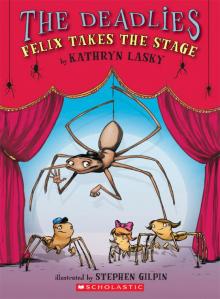 Felix Takes the Stage
Felix Takes the Stage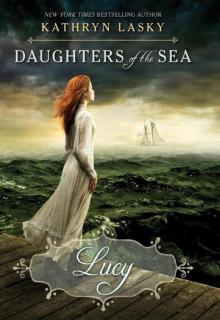 Lucy
Lucy Lone Wolf
Lone Wolf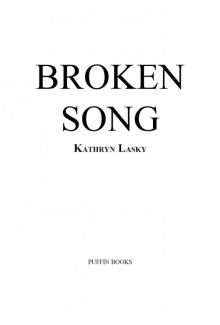 Broken Song
Broken Song The Shattering
The Shattering The Crossing
The Crossing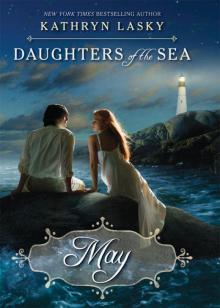 May
May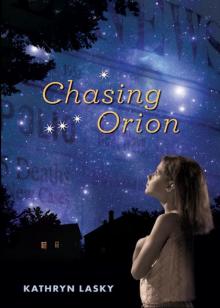 Chasing Orion
Chasing Orion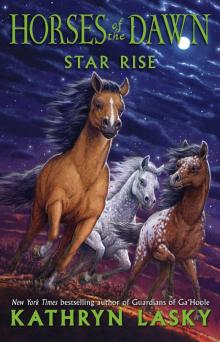 Star Rise
Star Rise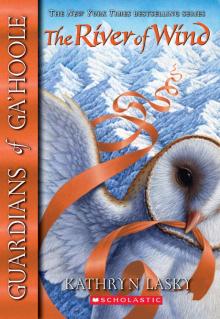 The River of Wind
The River of Wind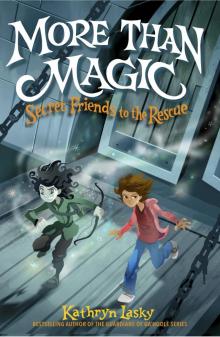 More Than Magic
More Than Magic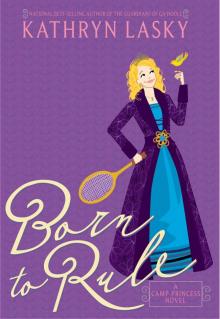 Born to Rule
Born to Rule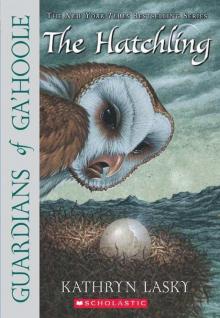 The Hatchling
The Hatchling The Rescue
The Rescue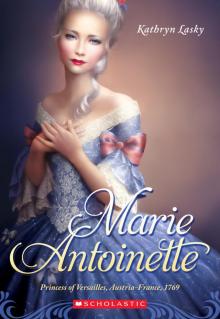 Marie Antoinette: Princess of Versailles, Austria - France, 1769
Marie Antoinette: Princess of Versailles, Austria - France, 1769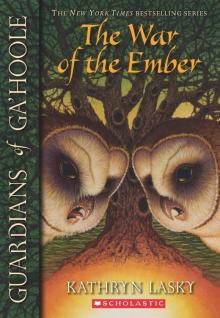 The War of the Ember
The War of the Ember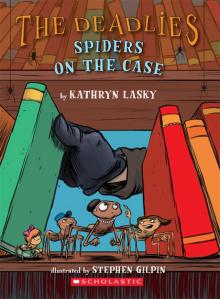 Spiders on the Case
Spiders on the Case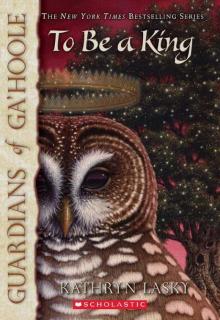 To Be a King
To Be a King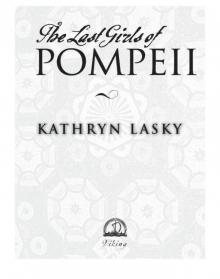 The Last Girls of Pompeii
The Last Girls of Pompeii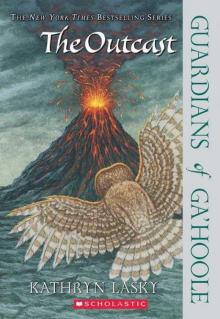 The Outcast
The Outcast Exile
Exile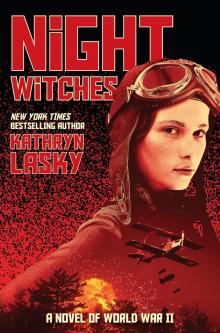 Night Witches
Night Witches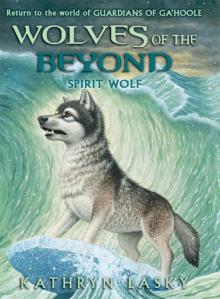 Spirit Wolf
Spirit Wolf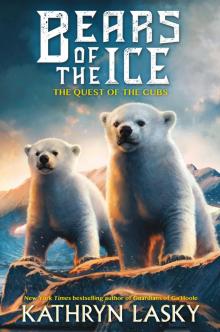 The Quest of the Cubs
The Quest of the Cubs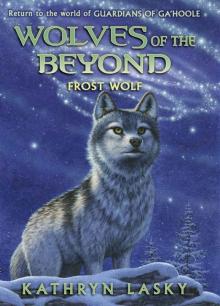 Frost Wolf
Frost Wolf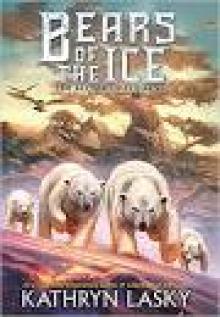 The Keepers of the Keys
The Keepers of the Keys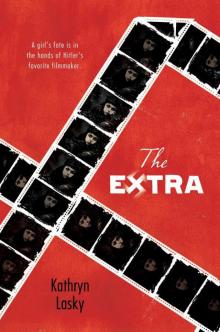 The Extra
The Extra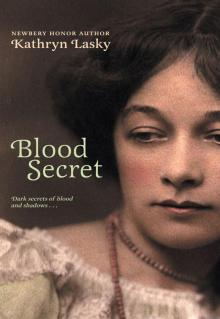 Blood Secret
Blood Secret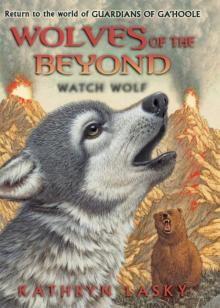 Watch Wolf
Watch Wolf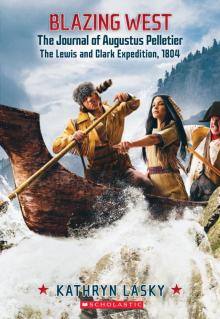 Blazing West, the Journal of Augustus Pelletier, the Lewis and Clark Expedition
Blazing West, the Journal of Augustus Pelletier, the Lewis and Clark Expedition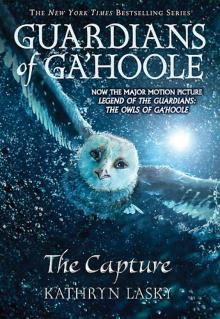 The Capture
The Capture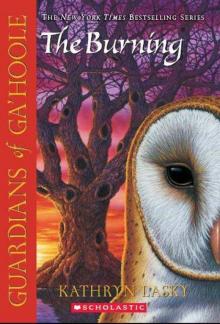 The Burning
The Burning The Journey
The Journey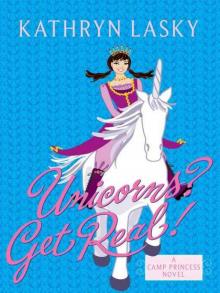 Unicorns? Get Real!
Unicorns? Get Real! The Escape
The Escape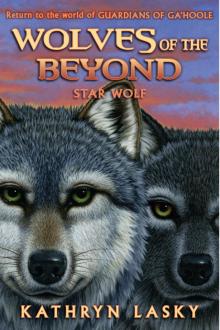 Star Wolf
Star Wolf Ashes
Ashes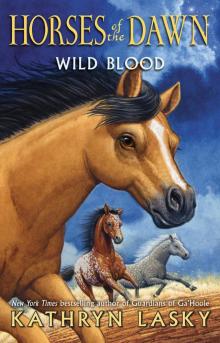 Wild Blood
Wild Blood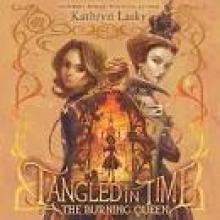 Tangled in Time 2
Tangled in Time 2 The Siege
The Siege Hannah
Hannah Elizabeth
Elizabeth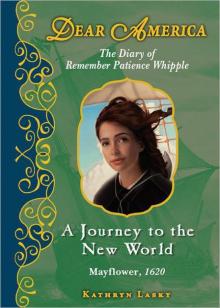 A Journey to the New World
A Journey to the New World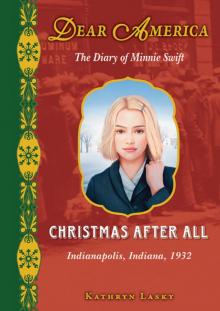 Christmas After All
Christmas After All Mary Queen of Scots
Mary Queen of Scots